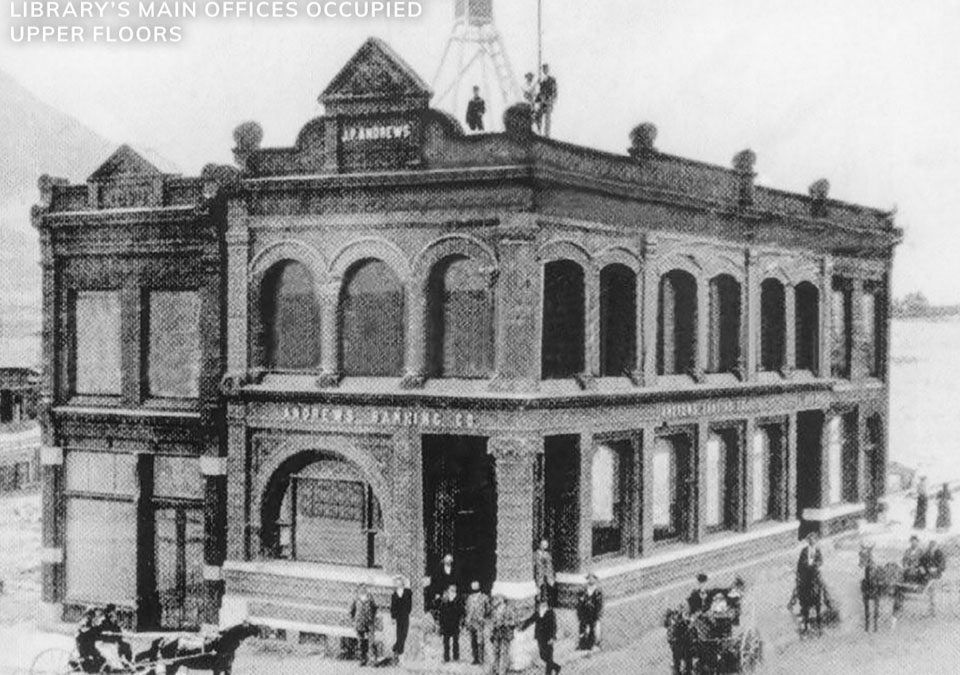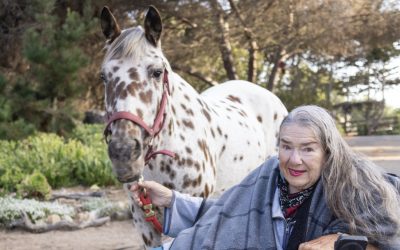SYNONYMOUS WITH THE COUNTY LIBRARY CENTENNIAL is a century of people who served and were served by the parade of material provided in an extensive array of locations. A key person at any given time is the County Librarian. They earned little but added enormously to the cultural fabric of the times.
To date, there have been ten County Librarians appointed by the Board of Supervisors: the longest-serving being Dale Warren Perkins (1970 – 1993) and the shortest, the first, Margaret E. Dold (1919-1921). If some history has a tendency to report the past as if humans had little to do with it, not so with the Centennial. The pioneers are remembered for their courage and tenacity to bring literacy—primarily through the printed word—to anyone at no charge.
Each faced the prime directive of any library: how to expand the world of information in fiction and non-fiction freely to every resident of the county. The answers varied given the vagaries of budget, popular support, and the rapidly shifting impact of technology.
Yet, each was neither shy nor reticent about confronting the challenges with the dexterity and determination of a crusader. After all, the calling was (and still is) to involve everyone from children to seniors in the liberating world of literacy.
However, each of the pioneer county librarians (1919-1958)—all women with one exception—had unique personal and professional challenges to carry the torch of literacy high in careers also marked by mind-numbing routines and notable successes.
They all traveled life paths to the central coast and beyond with both familiar and unique events. Devoted to the service to others, each remained in the background of their times. What follows is a brief glimpse as to why they are owed profound gratitude for nurturing the library to its centennial.
Of the pioneer leaders, in their personal lives, three never married, one found her husband (and the end of her career) in San Luis Obispo; two endured divorces while one sought refuge from personal tragedy to end a long career and short life locally. One left rather than face a decrease in salary and, finally, one because he seemed to be bored with local fare.
Whatever their personal lives, each contributed to the advancement of countless individuals who availed themselves of the universe contained in the word “library.”
Here’s the story.
When the Board of Supervisors finally decided in 1919 to hire a “certified librarian,” Margaret Eleanor Dold already had an extensive career. Born in 1877, she had served as the first librarian in the Hanford (CA) Public Library, then five years at the Chico State Normal School library, followed by a year as the founding librarian in the Siskiyou County Free Library (Yreka). From there, she served a year in the six-year-old Santa Barbara County Library before starting her duties here on July first.
Dold amply demonstrates the persistence of the earliest professionals to keep searching for different positions in order to earn a living as well as learning opportunities to gain experience. They learned to travel with little baggage. In between various posts, Dold also cataloged the library at the newly founded Santa Maria High School, attended summer classes at Berkeley and worked at least two years in the State Library.
For San Luis Obispo County, the task was enormous as there were no records, protocols, rules or traditions to assist her efforts. She was expected to literally implement a library system covering some 3000 square miles with a population of about 22,000 scattered over a primarily agricultural countryside. Additionally, she was responsible for ordering and processing books for a rapidly increasing number of rural schools. An expense ledger from the founding summer itemized what she found necessary to purchase: a typewriter, desk, rubber bands, scissors and white ink among other mundane items. The only record of her visiting potential sites indicates she traveled by a stage of some sort.
Yet, there were pre-existing pockets of enthusiastic supporters. Beginning in 1915 with petitions to the Board of Supervisors to implement a county system through 1919 with more petitions to finally hire a librarian, Dold found a supportive base. She will come to depend on them to find a location for any community collection, preferably with no rent and someone to care for the collection with little pay. These early “custodians” are also early heroes of the county library. Compiled branch histories pay tribute to these stalwart guardians of books.
In rapid order, Dold reported establishing stations in communities and servicing schools. In her first report in October, she lists 14 branches: 5 community and 9 schools. Having laid a preliminary foundation, when she requested a leave of absence in December 1920 (never to return), her reports listed nine community sites and schools to over 40.
Dold continued a pattern of short assignments with the San Francisco State Teachers College and then the Mechanic’s Mercantile Library until her final appointment to the Fresno County Law Library in 1931. Retiring 18 years later, she moved back to Hanford and died there in 1956.
Florence Allene Gantz
While not having as extensive experience as her predecessor, Flo Gantz will spend over seven years vastly expanding the number of county locations with the attendant tasks of finding sites, hiring local custodians as well as managing the unabating avalanche of books and other printed material.
When Dold began her leave of absence in December 1920, Gantz left her post in Ventura County Library to serve on a seemingly interim basis. She and Dold most likely knew each other through the quarterly local librarian meetings and knew the assignment was more than temporary. Indeed, Dold wrote her replacement of her intention to resign once the new state-mandated pay schedule was implemented. At the time, the salary was determined by the State Legislature for a four-year period. Thus, while Gantz is officially dated as starting as County Librarian in August 1921, she had already spent eight months at the post.
Born in Kansas in 1891, she attended Baker University, moved to California by 1911 with her family to continue her education at Pomona College (Class of 1913) and then Los Angeles Normal School (today UCLA). During her years at the former school, she worked in the library followed by years in the community’s public library before receiving her state certification in 1920.
Her first—and last—assignment as a county librarian began with moving the main office to the upper floors of the Andrews Banking Building. The city library occupied the same offices until the move into the then-new library (now History Center). Flo inherited a budget of $12,000, nine community locations and 32 school sites. When she resigned in mid-1928, the budget grew a mere four thousand dollars; however, branches numbered 19 and schools 82.
The enormous task of her years is reflected in the number of books ordered, processed and distributed: initially eleven thousand verses over fifty thousand. Circulation jumped from slightly under ten thousand to over 58,000. It is of interest to note that books to branches were not permanent as most needed to be returned in order to be sent to other branches. Multiple copies of fiction were not usually ordered so sharing was required.
Gantz had some assistants but personnel never exceeded five, one most likely a janitor. It is a wonder she had any personal time given the daily demands of the office, but on July 10, 1928, she married Maurice Foster Dyer. Born in 1885 in Iowa, Maurice worked for the telephone company and was a prominent member of the local Masons having been Master of King David’s Lodge in 1920.
The last documented appearance for the new bride was as a mother with her newborn daughter in 1931. Flo went on in her new life but there is no record she ever returned to library employment. She died in 1973.
While Margaret Dold implemented the basic foundation for the county library system, and Flo Gantz greatly expanded its reach, her successor was not so fortunate.





